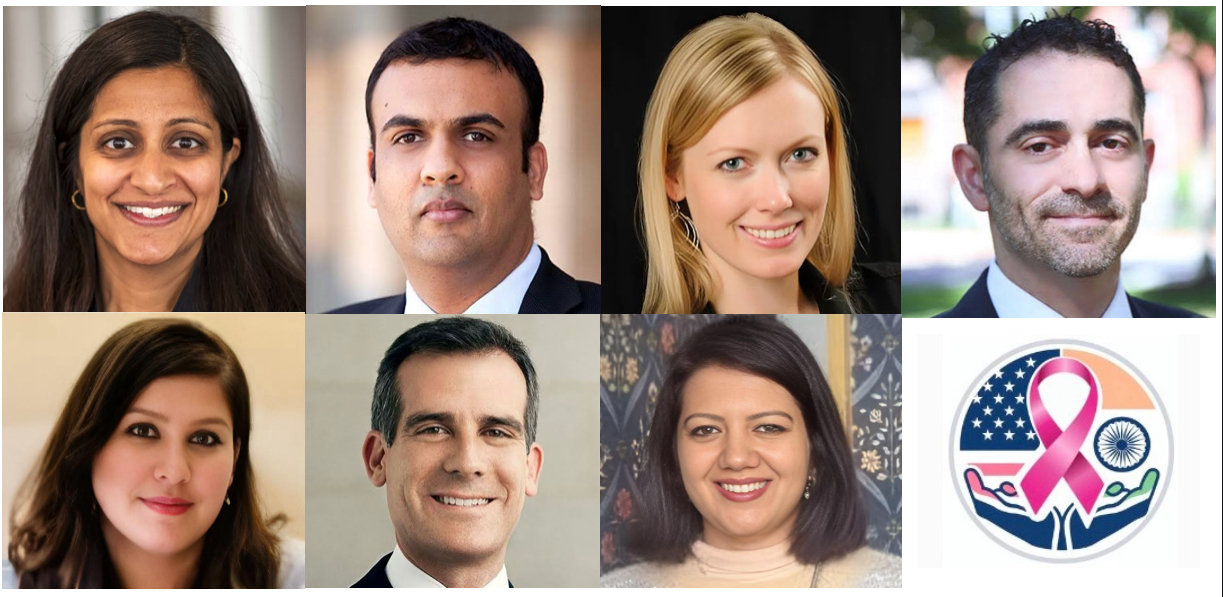In June 2023, President Biden and Prime Minister Modi reaffirmed the robust health partnership between the United States and India by announcing new commitments to accelerate the fight against cancer. This includes the establishment of a U.S.-India Cancer Dialogue to enhance the prevention, early detection, and treatment of cancer.
The U.S.-India Cancer Moonshot Dialogue aims to boost cooperation and collaboration in areas such as AI-enabled innovation for cancer care, novel therapeutics including vaccines, immunotherapy, and other biologicals, cost-effective and equitable cancer therapy, implementation science, cancer genomics and precision medicine.
Doctors and Professionals shared their insights about the U.S. – India Cancer Moonshot Dialogue on social media:
Aparna Raj Parikh, GI oncologist, at the Massachusetts General Hospital:
“Such a privilege to be a part of this initiative-commitment by both governments to reduce the burden of cancer convening to foster collaboration and explore innovative solutions with a focus of what we can together.”
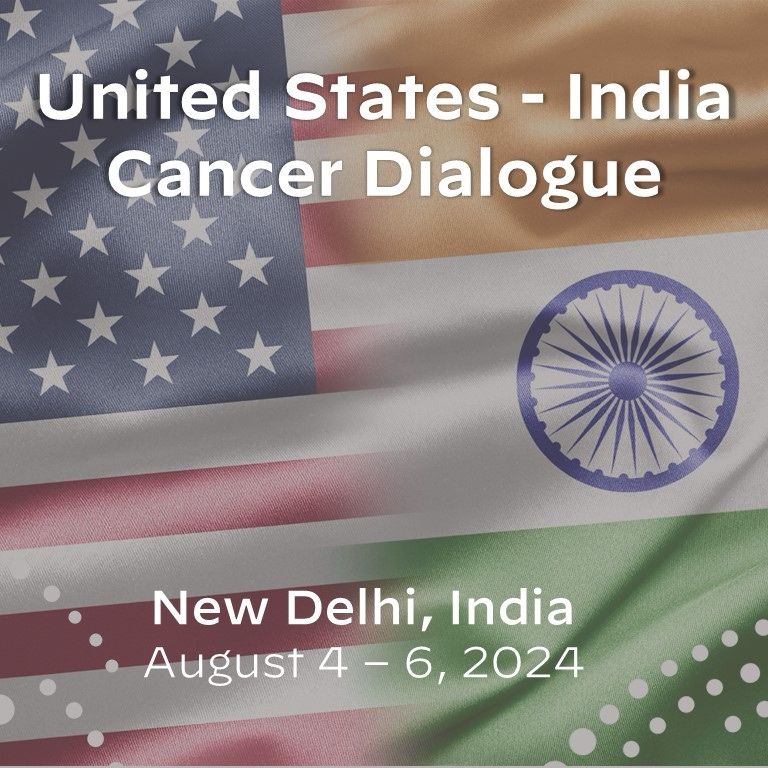
Mitesh Borad, Director – Cancer Cell, Gene and Virus (CGV) Therapy Lab at Mayo Clinic:
“Move the curve upwards, not sideways. Simple and powerful messages from Dr. James Allison at the U.S.-India Cancer Dialogue in Delhi.”
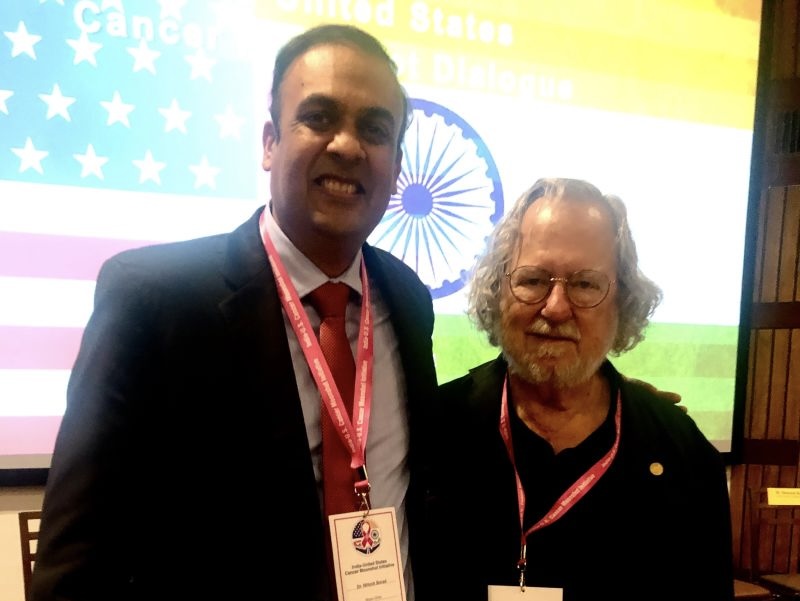
Catharine Young, Assistant Director of Cancer Moonshot Policy and International Engagement:
“A full house after Day 1 of the US India Cancer Dialogue bringing together multiple sectors who are all deeply committed to reducing the burden of cancer.
Thank you to U.S. Chamber, U.S.-India Business Council for providing this opportunity to extend our time together.”
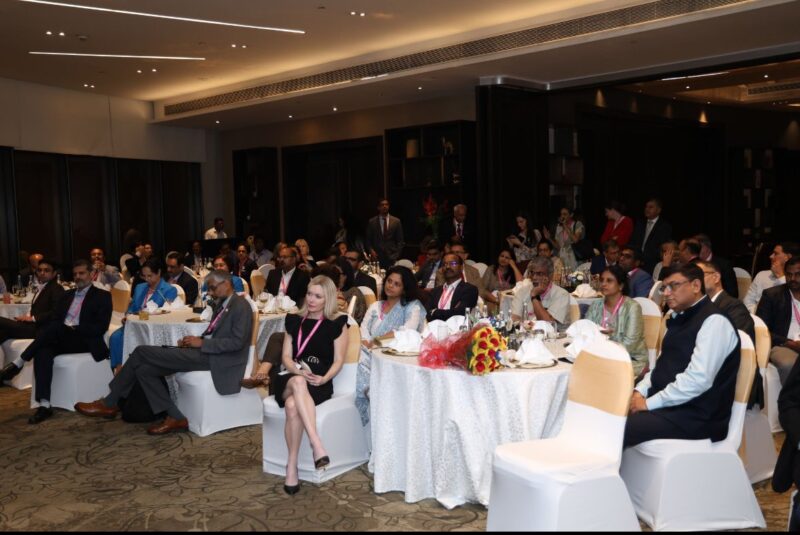
Shreya Sanghvi Malik, Domain Head (Biotech/Medtech/Agritech/Cleantech/Greentech) at Startup Incubation and Innovation Centre, IIT Kanpur:
“It was a fabulous opportunity to attend a talk by James P. Allison, Nobel Laureate in Medicine (2018), and a greater delight to hear witty prelude by U.S. Ambassador Eric Garcetti and Secretary DBT Rajesh Gokhale as part of India – United States Moonshot Cancer Initiatve.”
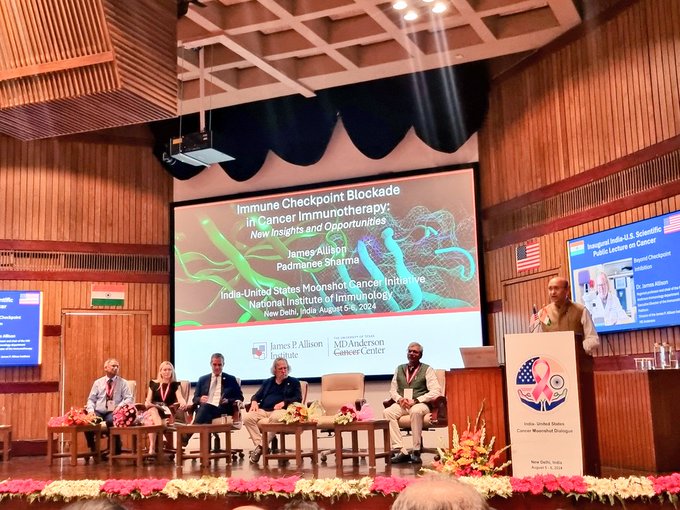
Eric Garcetti, US Ambassador in India:
“What an honor to address the inaugural US India Cancer Dialogue!
It was a privilege to meet so many scientists, healthcare professionals, policymakers and advocates who are leading the fight against cancer.
Together, we can achieve breakthroughs that prevent, detect, and treat cancer, and transform the future of cancer care.”
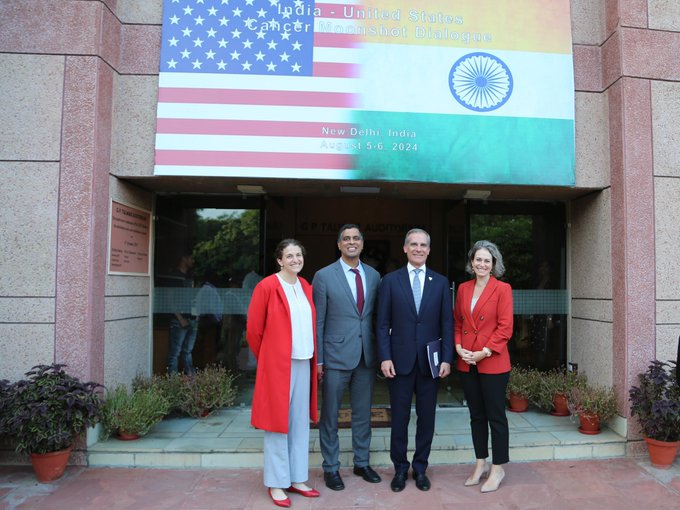
Miketa Sharma, Marketing Manager at Medtronic:
“What a privilege to represent Medtronic at US-India Cancer Moonshot Dialogue today!
It was a great experience – learning and discussing ideas how AI can improve Access and Equity across the cancer continuum!!”
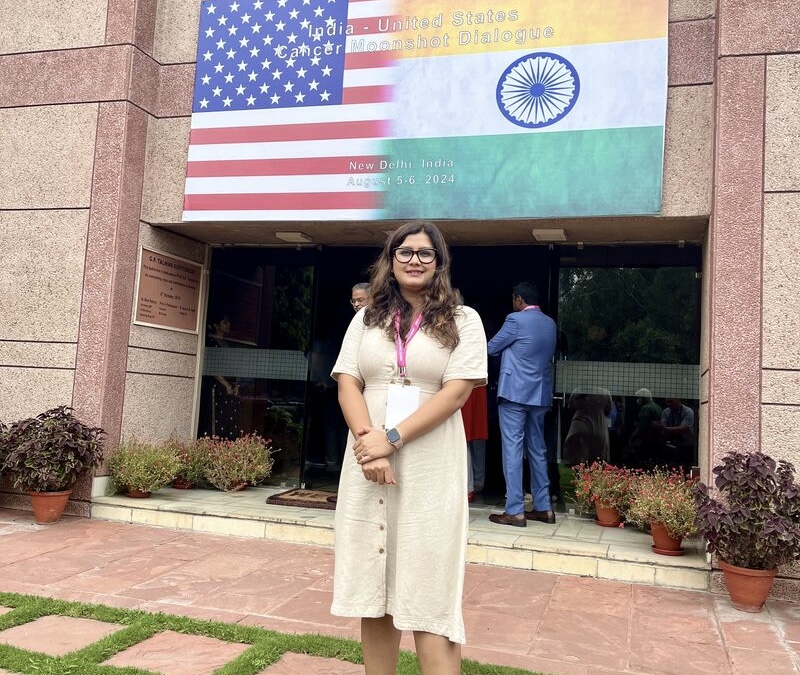
Alexander Slater, Managing Director at U.S.-India Business Council:
“One of the reasons I joined USIBC – US India Business Council close to five years ago was because I wanted to be part of a mission-driven organization.
Yesterday was a day when that sense of meaning was in full effect.
Last night in New Delhi, USIBC hosted clinicians, researchers, academics, private sector representatives and others for a reception at the end of the first day of the U.S.-India Cancer Moonshot Dialogue. In remarks to open the dinner, I had the honor of welcoming this deeply talented and devoted group of leaders in the fight against cancer and thanking them for what they’re doing to help, well, all of humanity.
Announced in then President Barack Obama’s 2016 State of the Union address, the CancerMoonshot sought to accelerate advances in cancer prevention, diagnosis and treatment.
Since he was Vice President, Joe Biden has played a key leadership role in the initiative, which has expanded its ambition during his presidency, aiming to reduce the number of cancer deaths by 50% over 25 years. Spurred by Catharine Young, of the White House Office of Science and Technology Policy, the Moonshot has gone global, having created partnerships between the United States and countries in Africa and now India.
It couldn’t happen soon enough. Rates of cancer in India are rising. At the same time, significant progress is possible merely via the expansion of access to existing prevention and diagnosis tools like HPV vaccines and mammograms.
As I learned over conversation last night, Indian clinicians, with the benefit of knowledge shared by American counterparts, are also leading the way improving equity and affordability for cutting edge treatments like immunotherapy.
With the two countries’ complementary capacities, the Dialogue is looking at new ways to leverage artificial intelligence, genomics, precision medicine and clinical trials to develop innovative therapies and improve patient outcomes.
It’s also sharing knowledge about survivorship care to enhance the well-being of cancer survivors and their support networks. The participants from both sides show the Dialogue is a paradigmatic example of the people-to-people ties that make the U.S.-India strategic partnership so strong and vibrant.
Like practically everyone in the world, I’ve lost loved ones to cancer, so I very much appreciated the opportunity to support the Moonshot in some small way.
I’m grateful to USIBC’s super team for all the work that went into this effort—Brajesh Barse, Sandeep Maini and Zulfia Alam deserve special recognition—as well as Genessa Giorgi, Jonathan Heimer, Naveen Rai, Meenakshi Nevatia and Sharad Goswami, our partners at the U.S. Embassy India and Pfizer respectively.
Their engagement and support were critical to the success of this very worthy endeavor.”
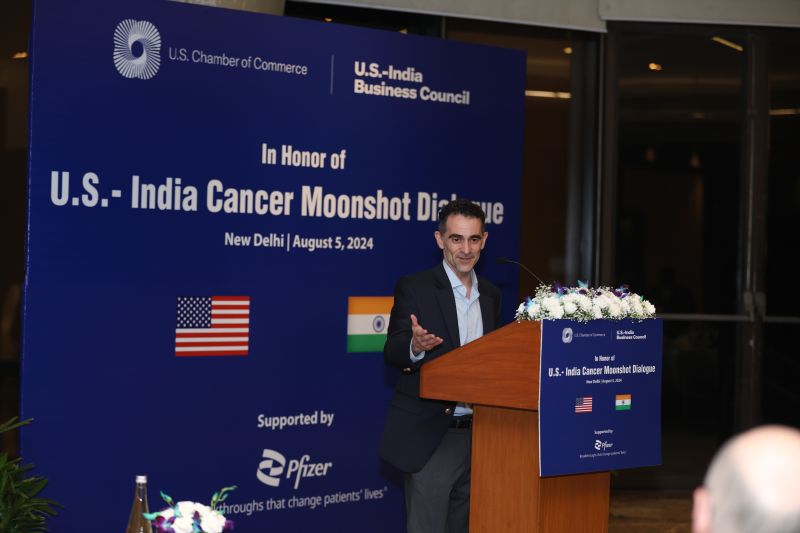
For more information on such events, visit oncodaily.com.


